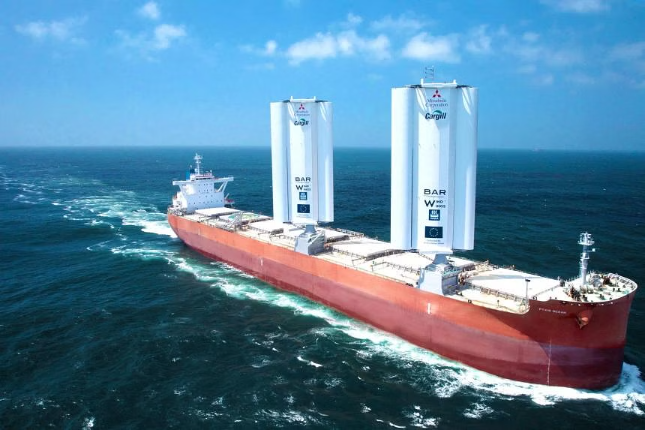


A cargo vessel equipped with expansive, British-designed wind-powered sails embarks on its inaugural voyage, marking a significant step towards greener maritime practices. Cargill, the chartering company behind the ship, envisions this innovative technology as a beacon for a more sustainable future in the shipping industry. The advanced rigid WindWings sails, akin to vast wings, are strategically employed to curtail fuel consumption and subsequently reduce the carbon footprint associated with maritime transport. Currently, the shipping sector contributes approximately 2.1% of the global carbon dioxide emissions. The vessel, Pyxis Ocean, undertakes its pioneering journey from China to Brazil, serving as the inaugural test for the practical implementation of wind-wing technology.